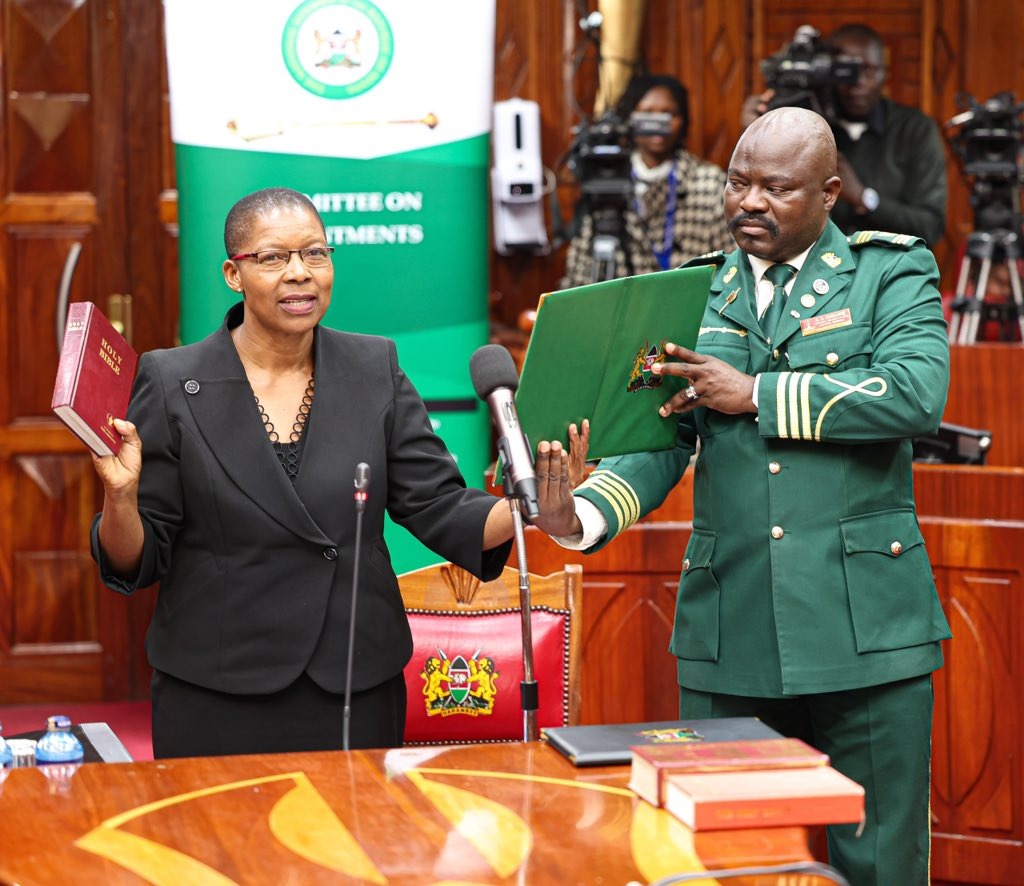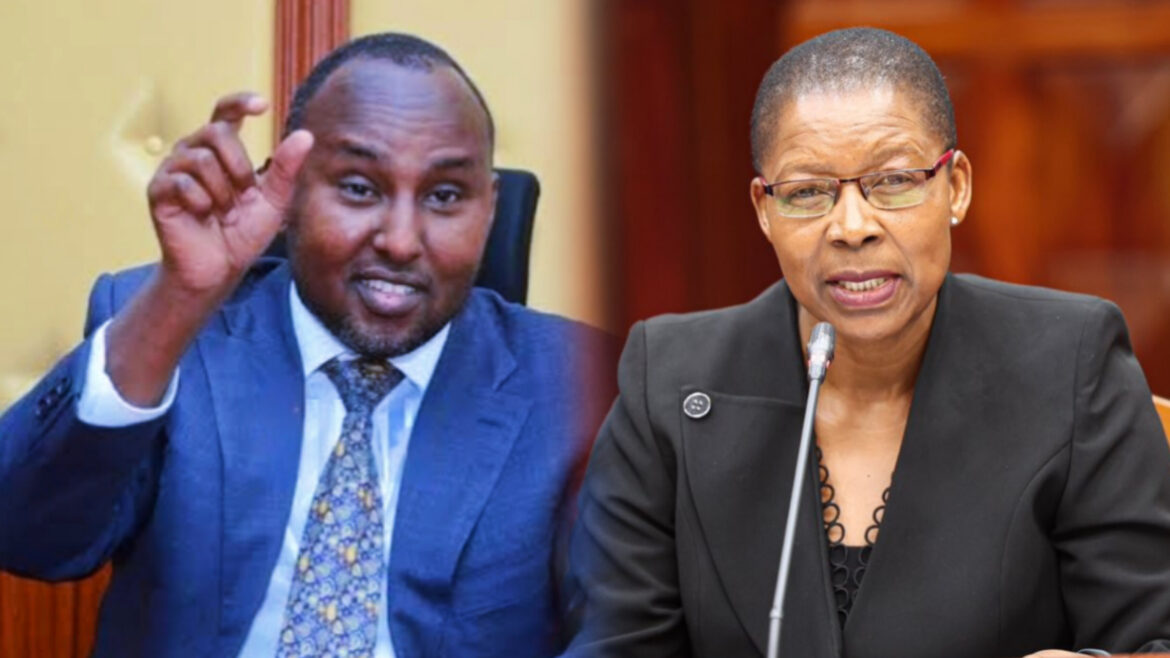The ghosts of the 2007 post-election violence (PEV) resurfaced during the vetting of Attorney General nominee Dorcas Oduor, as she faced a tough grilling from Suna East MP Hon. Junet Mohamed.
The former Director of Public Prosecutions (DPP) worker found herself in the hot seat when Mohamed raised a controversial question regarding her past decisions as a prosecutor.
Junet Mohamed pointedly asked, “This country went through post-election violence, and it is on record that you said there’s no evidence to charge certain people who were involved. As a distinguished prosecutor, why did you make that decision?”

Attorney General nominee Dorcas Oduor being vetted on August 9
In response, Dorcas Oduor explained her role as the chair of a task force assigned to review evidence related to the PEV cases. She emphasized that, as a prosecutor, her duty was to assess the evidence through a legal lens. Oduor stated, “I chaired a task force as a prosecutor, and I was expected to look at the evidence with the lens of a prosecutor, which requires me to be sure that before I can recommend prosecution, I have sufficient evidence and a reasonable prospect of conviction.”
Oduor’s response highlighted the delicate balance prosecutors must maintain between the demands for justice and the legal standards required for a successful conviction. Her decision not to pursue charges against certain individuals during the PEV era remains a contentious issue, particularly in a country where the scars of the violence still linger.
As the vetting process continues, Oduor’s past decisions are likely to be scrutinized further, with questions about her impartiality and judgment at the forefront of the discussion. The exchange between Oduor and Mohamed underscores the ongoing complexities surrounding the 2007 PEV and its lasting impact on Kenya’s political landscape.



